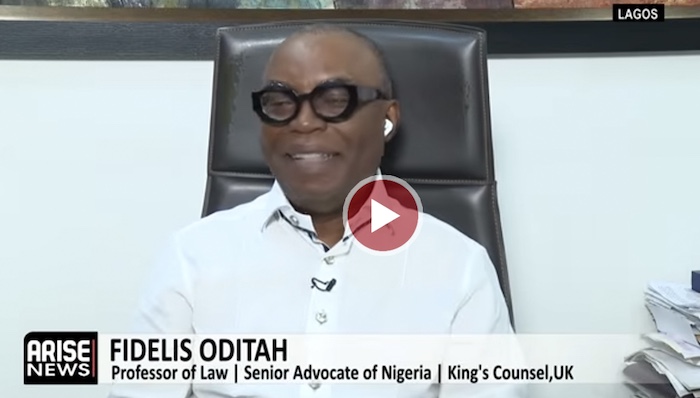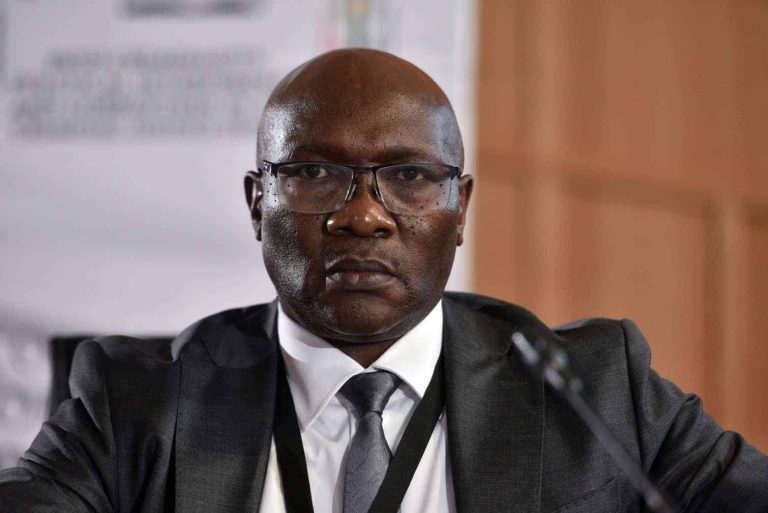

Former governorship aspirant and Senior Advocate of Nigeria, Professor Fidelis Oditah, has said that Nigeria’s next Chairman of the Independent National Electoral Commission (INEC) must be a person of integrity, independence and competence — not a political loyalist or a token academic appointment.
Speaking in an interview with ARISE News on Wednesday, Oditah, who is also a King’s Counsel in the United Kingdom, stressed that appointing the right person to lead the Commission is one of the most consequential decisions President Bola Tinubu will make.
“The INEC chairman needs to be someone who is impartial, independent, competent, accountable, professional and trustworthy. No one who witnessed the 2023 elections can have very good things to say about INEC. It is a matter of profound regret that Professor Mahmood was allowed to go without explaining the so-called ‘glitches’ that prevented the transmission of presidential election results,” Oditah said.
He warned that Nigeria could not legislate integrity into existence, noting that the problem with elections in Nigeria is not the law but governance and character.
“You cannot legislate for integrity or independence. The real issue is how to produce men and women of integrity, honesty, competence and fairness who can deliver credible elections. This is one issue the president must not politicise by looking for someone he can control,” he said.
The former Oxford-trained lawyer also cautioned against the recurring pattern of appointing university professors as INEC chairmen, saying academic titles do not guarantee competence or incorruptibility.
“I don’t see that being a professor necessarily prepares one for the chairmanship of INEC. In fact, two professors were convicted for electoral fraud in Akwa Ibom. So, professorship alone is not a qualification,” he noted.
Oditah also raised concerns about the economic vulnerability of some academics, arguing that poor remuneration could make them susceptible to corruption.
“Most professors earn about five or six hundred thousand naira a month. Hunger is a major conditioner of human behaviour. It’s risky to entrust people who are poorly paid with elections involving politicians who will offer anything to win,” he said.
He suggested that competent and experienced candidates from within INEC should be considered for the position.
“We should not ignore competent people already within the Commission. They understand the processes and can be better prepared than outsiders. You cannot come from ground zero and then manage a complex process like Nigeria’s elections,” he explained.
On electoral reforms, Oditah said Nigeria’s legal framework was adequate but undermined by the human element.
“The laws are there. The Electoral Act and INEC guidelines are sound. The problem is that they are not self-implementing — they require men and women of integrity to enforce them. Sadly, we often have the opposite,” he lamented.
He also criticised what he described as “dodgy jurisprudence” from the courts in post-election cases, particularly concerning the transmission of results through the INEC Result Viewing Portal (IREV).
“The Supreme Court held that INEC’s failure to transmit results electronically was lawful, even though the Act requires electronic transmission. Such interpretations only encourage fraudulent conduct,” he said.
Oditah further urged President Tinubu to rise above regional and partisan considerations when making the appointment.
“President Tinubu must resist the temptation to appoint mainly from the Southwest. Legitimacy cannot be built on narrow regionalism. The criteria should be competence, fairness, independence and integrity, not ethnicity,” he warned.
He praised past leaders like former President Goodluck Jonathan for appointing credible figures such as Professor Attahiru Jega and Barrister Mike Igini, who helped restore public confidence in the electoral process.
“We need people like Mike Igini — people who go to count votes, not money. That’s the calibre of leadership required at INEC,” Oditah concluded.
Boluwatife Enome



